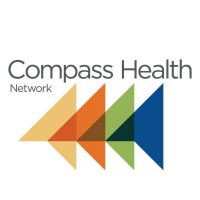
Missouri Department of Social Services - Division of Youth Services
Drug Rehab Center in Jefferson City, Missouri
- Opioid Addiction
- Dual Diagnosis
- Drug Addiction
- Alcoholism
The Missouri Department of Social Services – Division of Youth Services offers a full range of care and assistance to children and youth with behavioral health, special education, and substance abuse needs, including inpatient and outpatient treatment, counseling, family support, aftercare services, vocational assessment and job search assistance, and specialized treatment for LGBTQ+ youth.
About Missouri Department of Social Services - Division of Youth Services in Missouri
The Missouri Department of Social Services – Division of Youth Services in Jefferson City is a state-wide agency that provides care and assistance to children and youth. This facility offers a full continuum of care for youth with behavioral health, special education, and substance abuse needs. They provide an array of services designed to assist young people in achieving their highest potential, including in-person and virtual counseling, special education support, residential care and family counseling.
The Division of Youth Services specializes in the treatment of addiction and substance abuse. This includes providing short-term and long-term inpatient stabilization, outpatient treatment, and individual, family, and group therapies. They also have comprehensive aftercare services, such as peer and self-help groups, to help youth stay strong in their recovery. They also provide support services such as vocational assessment and job search assistance to help youth with their transition to independent living.
The Missouri Department of Social Services – Division of Youth Services is accredited by the Joint Commission and is licensed by the Missouri Department of Mental Health. They have received numerous awards and recognitions such as the Missouri Department of Mental Health’s Excellence in Service Award, the Children’s Network of Missouri’s ACE (Advocacy, Collaboration, and Excellence) Award, and the Missouri Quality Award. They also provide specialized treatment for LGBTQ+ youth, and provide Leadership and Advocacy Training to empower youth to advocate for themselves.
Genders
Ages
Modality
Additional
Conditions and Issues Treated
Treatment for opioid addiction is best made with the help of medical professionals who are experienced in dealing with these types of drugs. This treatment can involve medications, exercise, behavioral therapy, and counseling sessions. It is important to note that the effectiveness of treatments for opioid addiction vary, so it is vital to research which treatment options are suitable for each individual.
Many people who struggle with opioid addiction need to attend specific programs like methadone , Suboxone or Vivitrol clinics.
These types of programs will provide the patient with legal, prescription medications that can help them overcome their cravings for illegal opioids like heroin or fentanyl . If the patient has a chronic condition like Hepatitis C, they must undergo treatment before they can begin taking these medications.
Levels of Care Offered
This center offers a variety of custom treatment tailored to individual recovery. Currently available are Aftercare Support, Drug Rehab, Inpatient, Residential, with additional therapies available as listed below.
Inpatient recovery offers individual therapy, groups, and family therapy. The length of inpatient addiction treatment depends on the addict and their addiction. Inpatient rehab is a costly drug treatment, costing anywhere from $30k- to $60k. However, insurance often offers help in covering these costs.
Residential treatment programs are those that offer housing and meals in addition to substance abuse treatment. Rehab facilities that offer residential treatment allow patients to focus solely on recovery, in an environment totally separate from their lives. Some rehab centers specialize in short-term residential treatment (a few days to a week or two), while others solely provide treatment on a long-term basis (several weeks to months). Some offer both, and tailor treatment to the patient’s individual requirements.
Aftercare support is vital to those who have completed a drug or alcohol treatment program. This support comes in individual and family counseling, treatment of psychiatric and other medical conditions, and medications to reduce cravings. It helps recovering addicts adjust to normal day-to-day activities and can last for a year or longer.
The majority of drug and alcohol addicts who receive aftercare treatment do not relapse. It is estimated that without aftercare, the relapse rate will be between 70 to 90 percent for most people. Aftercare is the final stage in addiction recovery, but it will also help maintain sobriety if relapse does occur.
Therapies & Programs
Individual therapy is ideal for addicts who want to focus on themselves. It can also be helpful for those whose withdrawal symptoms are exacerbated by the presence of other people.
Benefits of individual therapy are:
- Access to a personalized treatment plan that focuses on the individual needs of the addict
- More privacy during treatment sessions
- Better personal development through introspection
- Increased self-awareness regarding addictive tendencies in order to avoid relapse
- Greater potential for a long-term recovery plan
- Receiving professional advice and detox assistance from medical staff
Family therapy can help you and your family deal with old issues that may trigger substance abuse. The idea behind family therapy for drug addiction is that you are never fully healed from substance abuse until you’ve healed your relationship with your family, too. To get sober, you need to find a different way to cope with the pain in your life.
This is when a group of people in various stages of recovery meet up and discuss their experiences, triggers, successes, failures, and even alternative therapies! Unlike support groups where everyone already knows each other, group therapy is conducted along side outpatient or inpatient treatment at Missouri Department of Social Services - Division of Youth Services.
Those struggling with addiction can benefit from learning certain life skills. It is not as simple as quitting drinking or taking drugs and thinking that the hard part is over. Being sober means living a whole new way of life. Many recovering addicts have found that they need to develop talents like time management, organization, communication skills, socialization skills, and self-esteem to make their life in sobriety work, Missouri Department of Social Services - Division of Youth Services is here to help with that.
Payment Options Accepted
For specific insurance or payment methods please contact us.
Additional Details
Specifics, location, and helpful extra information.
Jefferson City, Missouri 65109 Phone Number(573) 751-3324 Meta DetailsUpdated November 25, 2023
Staff Verified
Missouri Department of Social Services - Division of Youth Services Patient Reviews
There are no reviews yet. Be the first one to write one.
Jefferson City, Missouri Addiction Information
Opioid-related overdoses in Missouri have been increasing steadily for the past three decades. In 2018, more than 1,130 people in Missouri died from opioid abuse. Methamphetamines and marijuana abuse have surpassed opioid abuse in Missouri. Missouri is the number 1 methamphetamine manufacturer in the country with more than 27 meth labs per 100,000 people.
The drug addiction problem in Jefferson City, Missouri, is relatively bad. In 2012, about 9.4% of residents reported using illicit drugs. Additionally, approximately 15.5% of residents reported binge drinking alcohol. Over 1,000 admissions to drug and alcohol treatment facilities in the city in 2016. Many resources are available in Jefferson City, Missouri, to help you stay sober and live a productive life.
Treatment in Nearby Cities
- Lebanon, MO (66.1 mi.)
- Cuba, MO (58.2 mi.)
- New Madrid, MO (203.1 mi.)
- Cardwell, MO (205.6 mi.)
- Kirksville, MO (113.1 mi.)
Centers near Missouri Department of Social Services - Division of Youth Services


The facility name, logo and brand are the property and registered trademarks of Missouri Department of Social Services - Division of Youth Services, and are being used for identification and informational purposes only. Use of these names, logos and brands shall not imply endorsement. RehabNow.org is not affiliated with or sponsored by Missouri Department of Social Services - Division of Youth Services.



